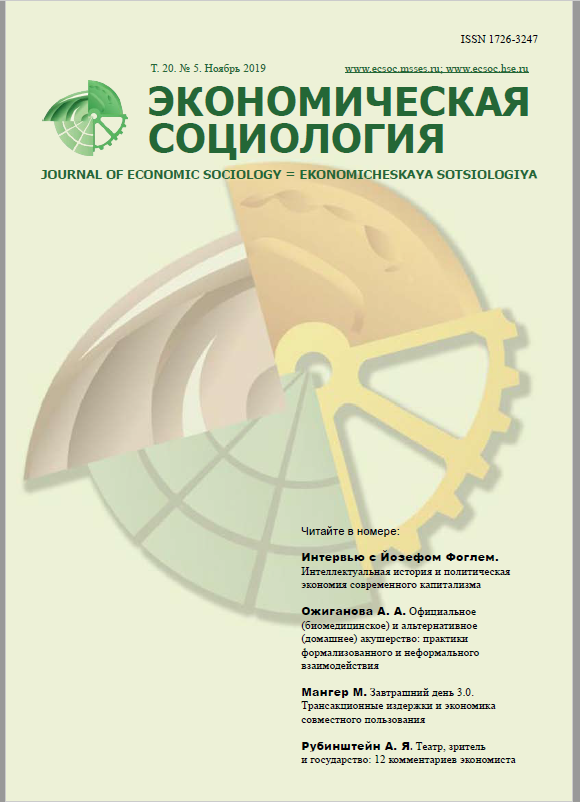Trust vs. Disorientation: Economy of the Russian-Speaking ‘Migrant’ Groups in Social Media (The Case of VKontakte)
Abstract
The article discusses the economic practices presented in the “migrant” groups in the social network VKontakte. “Migrant” groups refer to groups positioned as communication platforms for migrants, which is reflected either in the name of the group (for example, “migrant bulletin”) or mentioned in its description. “Migrant” groups are quite a common phenomenon; almost every major Russian city has digital communities that position themselves as platforms for discussing migration issues. Social media plays an important role in migration processes, acting as a tool to minimize the information deficit as one of the effective mechanisms of integration. One of the key functions of “migrant” social media is seen as partial compensation for the deficit of social capital in the host country, therefore-minimizing the costs and risks associated with a particular stage of the migration process. At the same time, Russian-speaking “migrant” digital communities rarely come into the research field. In this regard, the question arises: do “migrant” sites in Russian social networks perform the same functions? Is it possible to talk about the existence of a “migrant” economy in the Russian-speaking digital media, and what does it represent? Is it possible, in principle, to expect to extract from Russian-language “migrant” sites any valuable information about the economic activity of migrants, given all the difficulties associated with qualitative research of digital communities? The search for answers to these questions was the purpose of this study. Forty Russian-speaking groups in the social network VKontakte were selected and positioned as “migrant” and at the same time, “live,” containing user dialogues in open access. Next, the search and analysis of messages containing mentions of purchase and sale, exchange, rent, donations of various types, services, and information were carried out. As a result, it was possible to construct several summaries. In particular, the “migrant” economy in VKontakte can be divided into two categories: the economy for migrants, and the economy on migrants. Both are linked to a lack of information and social capital. In the first group, we attributed the practice of freely providing their information and services that allow us to eliminate this deficit or partially reduce its cost. The second group included practices that exploit the lack of social capital of migrants, such as paid legal services, trade in documents, involvement in alternative integration, and — often associated with illegal activities — integration trajectories.













